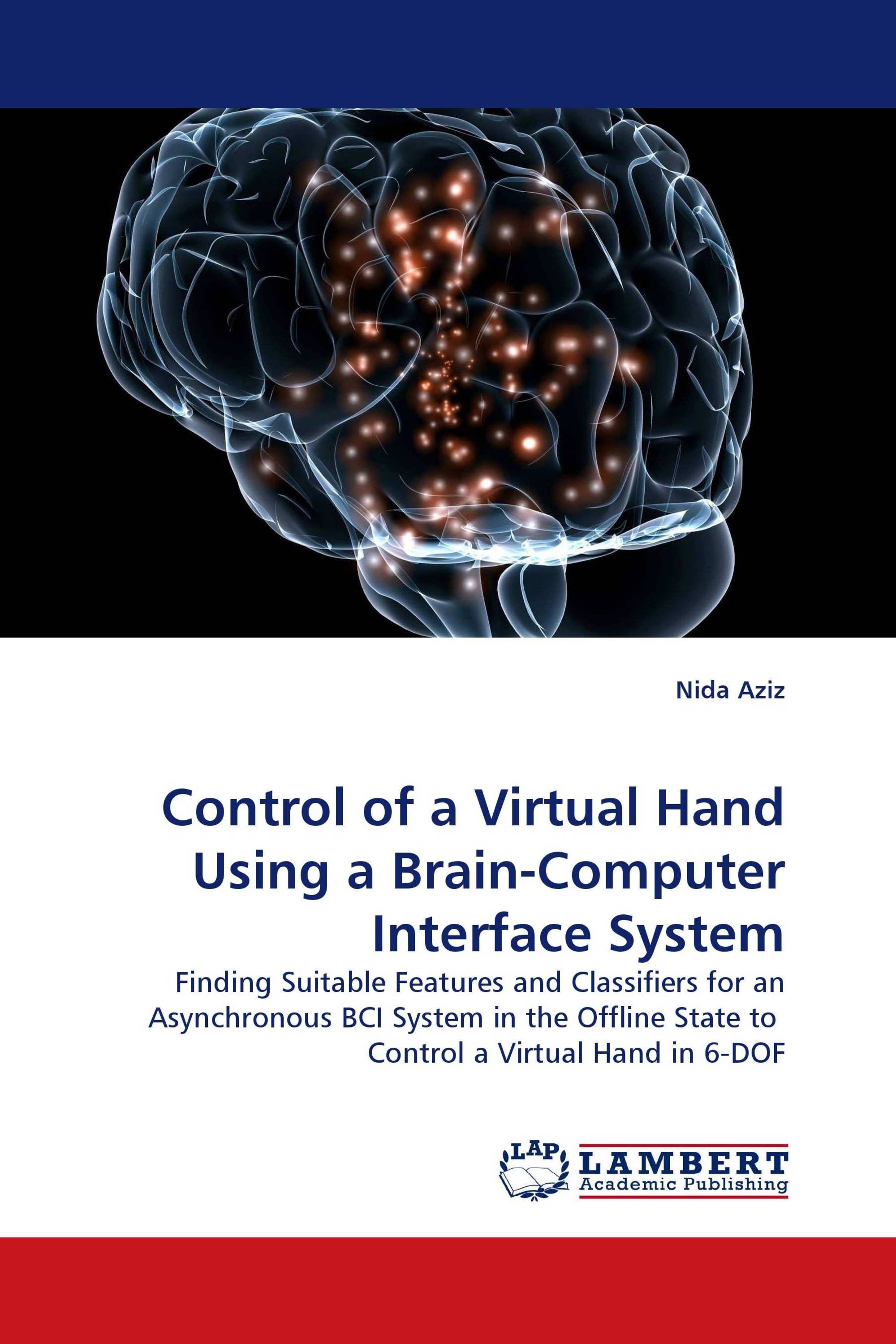Control of a Virtual Hand Using a Brain-Computer Interface System
Finding Suitable Features and Classifiers for an Asynchronous BCI System in the Offline State to Control a Virtual Hand in 6-DOF
LAP Lambert Academic Publishing ( 2011-02-01 )
€ 49,00
An Asynchronous BCI was designed using non-cue based data collected from several participants in two separate sessions with different protocols. Several different features were extracted and evaluated using the DBI and the best of these, the joint time- frequency (JTF) feature, was chosen for detecting onset and classifying mental tasks. For onset detection, two different methods were employed and compared on the basis of classification performance obtained from confusion matrices, repeatability and ease of application. Different classifiers were tested for onset detection of which Linear Discriminant Analysis (LDA) classifier showed better results. The classified onset using JTF features and LDA classifier was then used to select the active period data in both sessions, which was then sent to the mental task classifier. Mental Task classification was done using Neural Networks, Support Vector Machines and LDA. The performance of the mental task classifier was also evaluated using confusion matrices. A virtual hand was developed graphically in MATLAB and was programmed to move in 6 different directions according to the classified outputs.
Book Details: |
|
|
ISBN-13: |
978-3-8443-0441-1 |
|
ISBN-10: |
384430441X |
|
EAN: |
9783844304411 |
|
Book language: |
English |
|
By (author) : |
Nida Aziz |
|
Number of pages: |
104 |
|
Published on: |
2011-02-01 |
|
Category: |
Electronics, electro-technology, communications technology |




